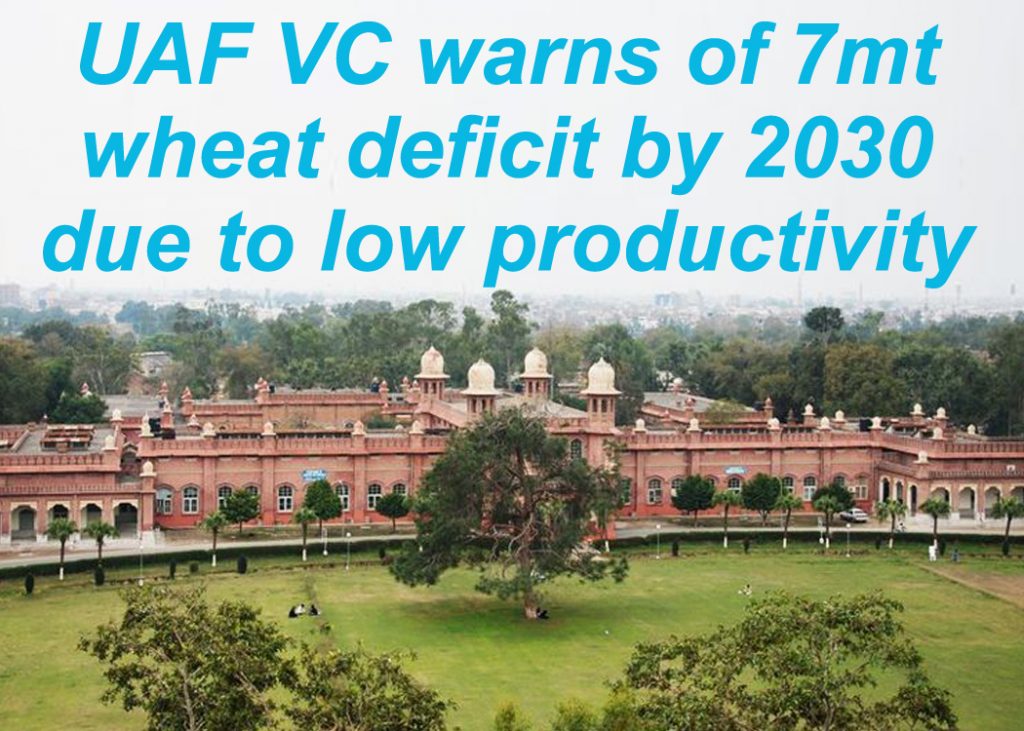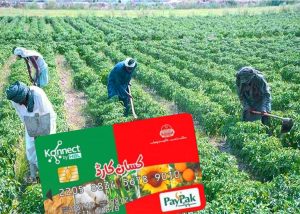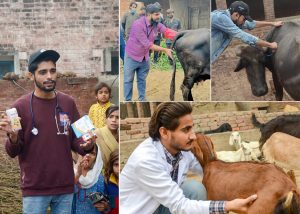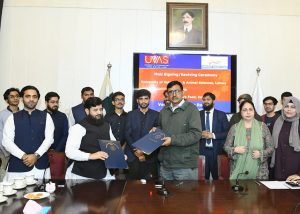
By Our Staff Reporter
FAISALABAD: Prof. Dr. Iqrar Ahmad Khan, Vice Chancellor of the University of Agriculture Faisalabad (UAF), has warned the country may encounter a 7 million-tonne wheat deficit by 2030 unless there is a significant improvement in crop productivity.
Dr Khan said this while speaking to farmers during the ongoing wheat campaign jointly conducted by UAF and the Punjab Extension Department at Mian Rashid’s farm at Chak No. 125, Jaranwala. The campaign aims to enhance per-acre wheat production.
Dr Khan acknowledged the positive impact of last year’s wheat campaign, which resulted in a three-mound per acre increase in the average wheat production in various districts and divisions of Punjab. Despite the country’s average wheat yield being 32 mounds per acre, progressive farmers have achieved up to 60 to 70 mounds per acre by exploiting technological potential.
Highlighting the interconnectedness of the agriculture sector with other industries, Dr Khan cited the Mexi-Pak wheat variety as an example that led to self-sufficiency within two to three years after the 1966 wheat crisis in the country.
Dr Khan also drew attention to 15 percent wheat losses due to outdated harvesters and the 65pc extra use of agricultural water for wheat and rice, stressing the need for water conservation, timely wheat sowing, balanced fertilizer usage, and use of modern farming techniques.
Soil Sciences Director Prof Dr Ghulam Murtaza advocated for responsible fertilizer use and the importance of certified seeds.
Abdul Hameed, Director of Faisalabad Division Agriculture Extension, urged farmers to sow wheat before November 20 and informed them about a government subsidy of Rs1500 per bag for certified seeds.
Principal Officer of PRP, Prof Dr Jalal Arif, discussed the vice chancellor’s vision, which includes UAF students visiting farmers’ fields to enhance productivity and break the agriculture sector’s stagnation. He also mentioned UAF’s development of heat-tolerant wheat varieties.
Associate Prof Dr Muhammad Naveed highlighted efforts to transform Chak 125 into a model village through technology transfer and consultancy.







